Pedagogical assistants – teachers, counsellors, friends
Subotica, Surdulica, April 2023 – “The job of a pedagogical assistant is to be at the service of the child, i.e. the student, and to support the children on their developmental path surrounded by his or her colleagues. I think that we are the key link connecting children, parents and the institution and that the pedagogical assistant is irreplaceable. He or she is the key person for supporting children from marginalized groups“, says Nada Dimovic, pedagogical assistant at the primary school Matko Vukovic in the city of Subotica, at the beginning of our conversation.
She remembers that her hands were full at the start of the COVID-19 pandemic because she had to bring printed learning materials to the children every day.
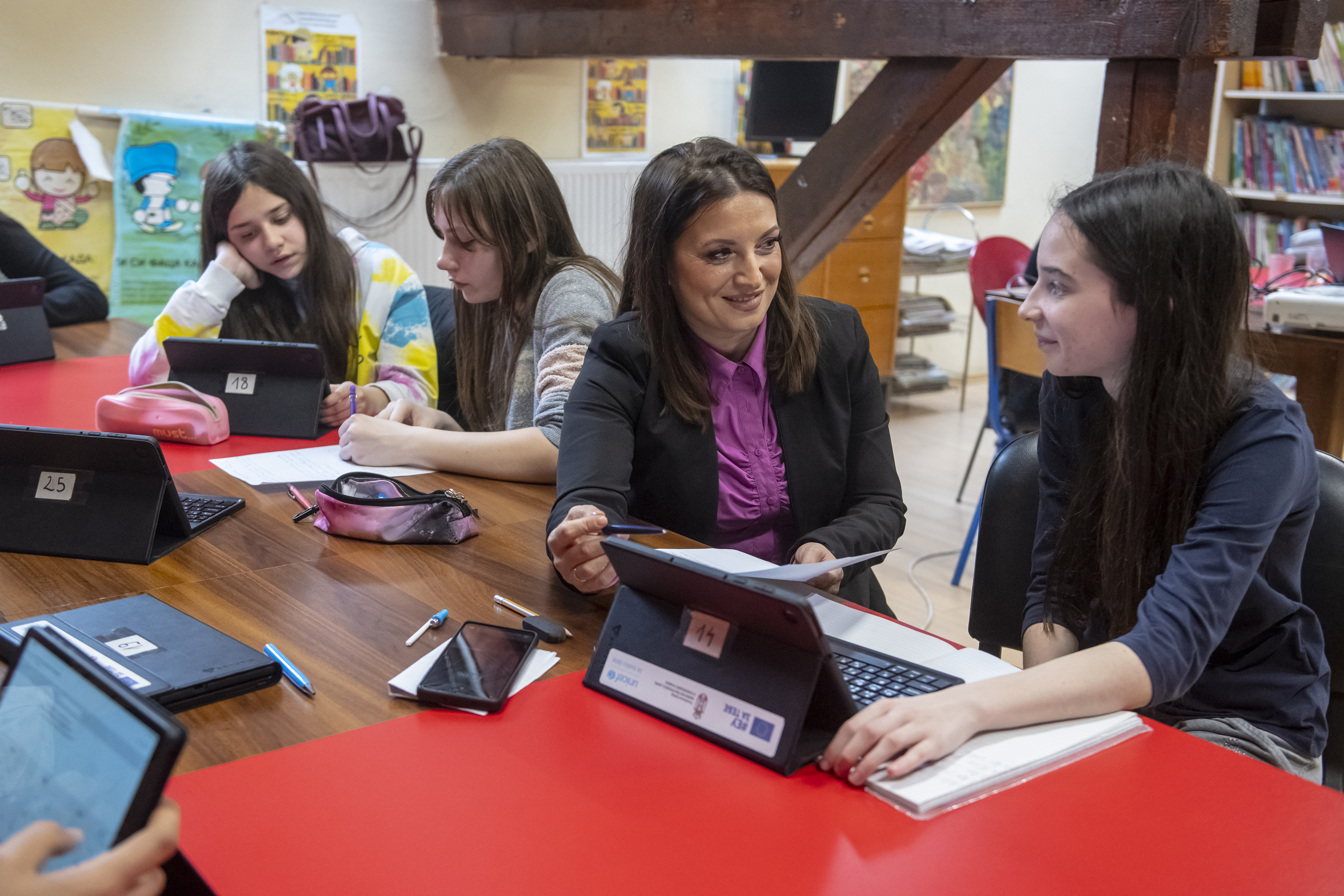
“During the pandemic, one in three of our students did not have a computer, could not follow the classes or be in daily communication with me and the teachers. Thanks to this project and UNICEF, those troubles ended. Every child that needed it was given a tablet with an internet card, and this way we were able to get in touch with them every day and had faster and better communication”, says Nada.
For all students to have access to computers and learning support, the Bridging the Digital Divide in Serbia for the Most Vulnerable Children project has been conducted in 30 schools for two years now. It has been implemented by the Ministry of Education and UNICEF with the financial support of the Delegation of the European Union to Serbia.
The schools in the project have received tablets and laptops, as well as the internet connection with the support of Yettel. In addition schools have established Education Technology Libraries where students can sign out equipment for learning at school and at home. Nada’s school has received 66 computers. Learning Clubs have been established in all these schools as an innovative form of learning support.
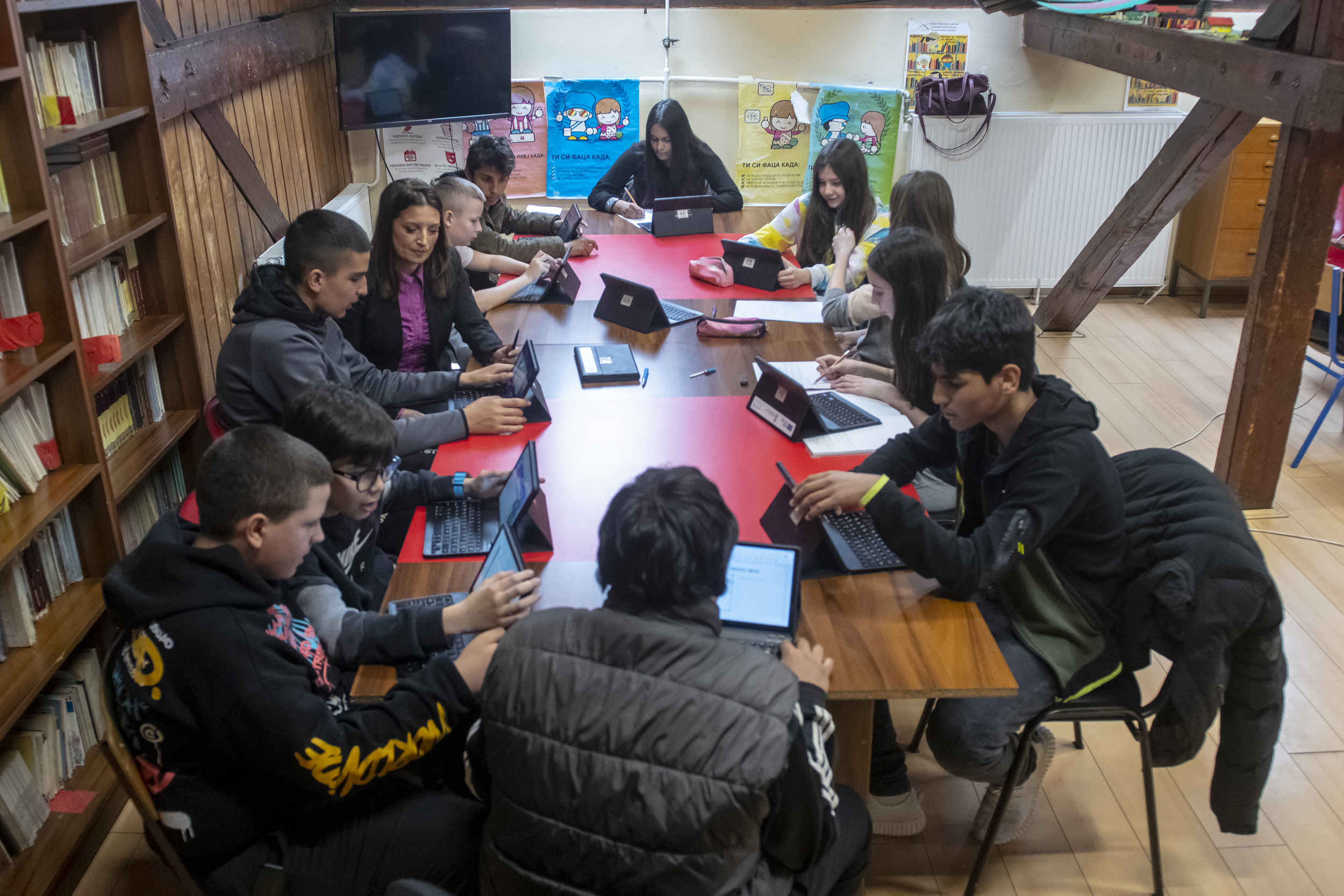
Thirteen-year-old Rahman attends the Learning Club regularly, twice a week. He is a good student and he is considering two very different professions – dentist or car mechanic. Whatever he decides, he will leave primary school with great knowledge.
“Nada helped me with maths and geography as I had slightly lower grades. She took a lot of time to teach me. Tablets are important for me because sometimes certain information is missing in the textbook and you can find it online and get a good grade”, Rahman explains.
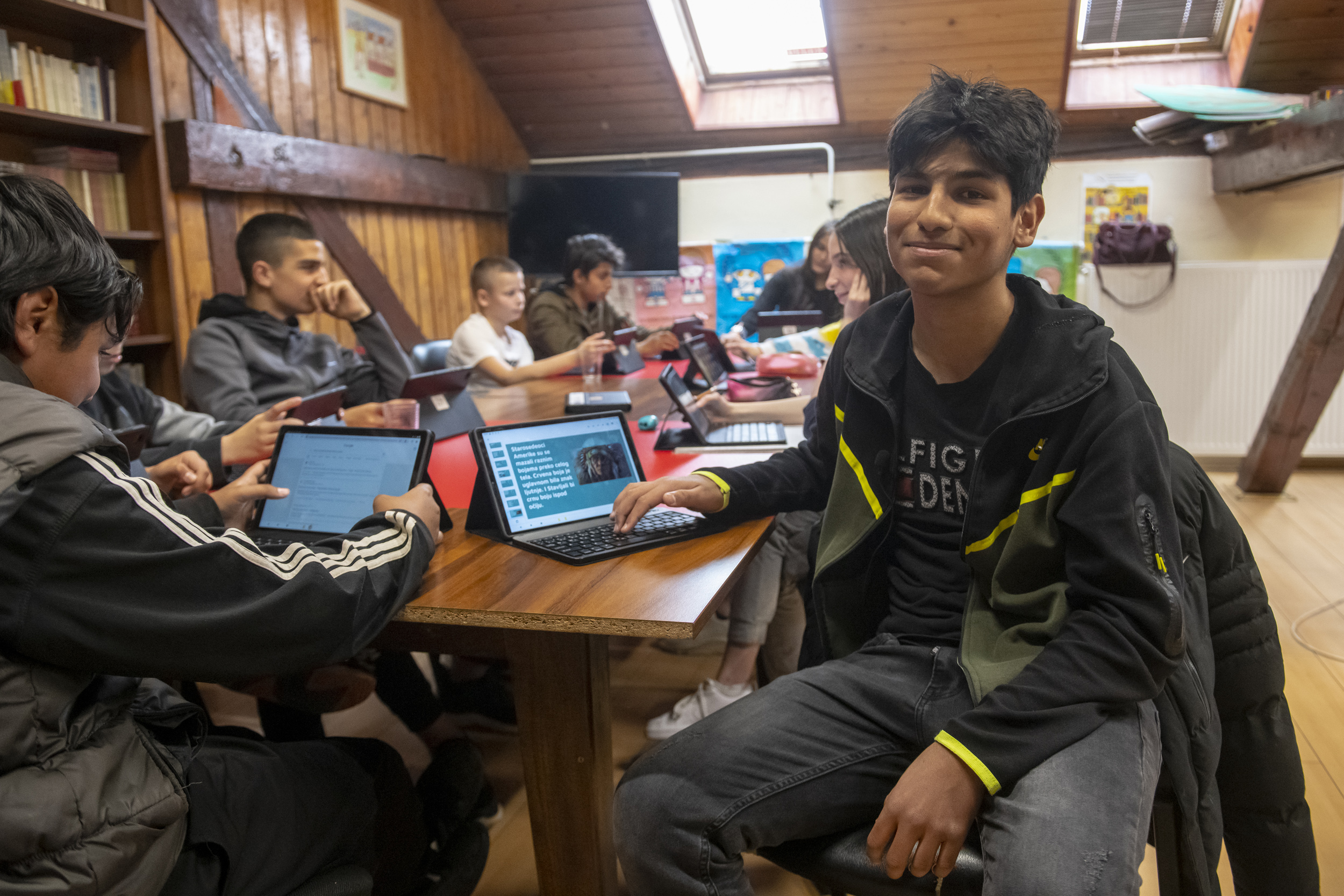
Fifteen-year-old Benita is also a regular at the Learning Club, mostly for natural sciences.
“Since I don’t have a computer at home, I take a tablet or a laptop at school. When something was unclear, we came to Nada and researched Egypt online together, so we learned and remembered more,” she says.
In a separate building, where students from grades one to four attend classes, the Smart classroom is like a beehive. First-graders are learning numbers, drawing and writing. They are still not using tablets, but Nada is teaching them about addition and subtraction using a laptop and a smart board.
"We use quizzes, do various research in the subjects ‘The World Around Us’ or ‘Nature and Society’, we search for information. Sometimes we also organize combined religious and civic education classes, where children learn about diversity and socialize through workshops,” says Nada.
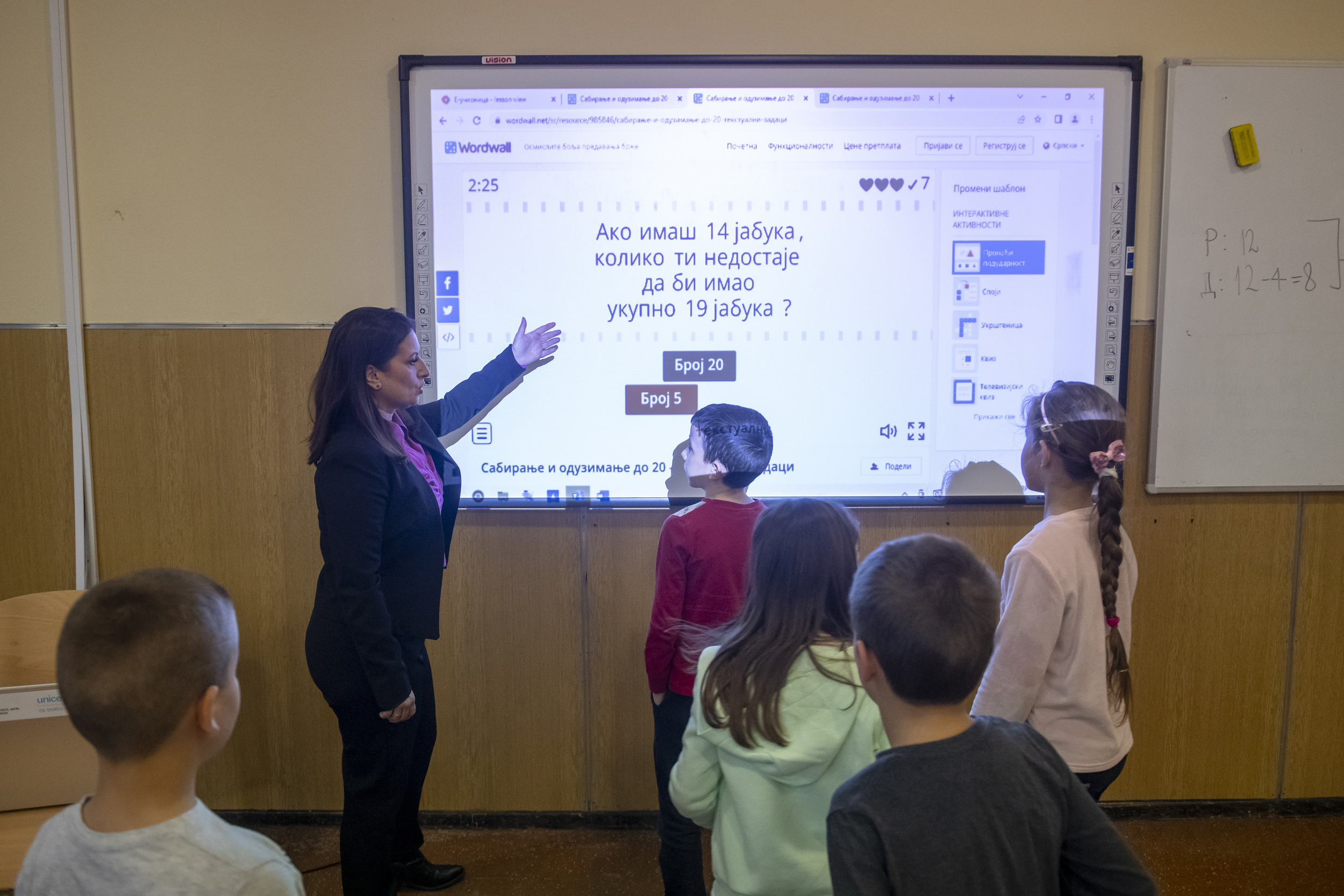
“It’s fun and it’s nice, we learn new things, new words, about good behaviour. There are so many things, so many, many, so I can’t name them all at once”, shy seven-year-old Helena tells us. Her friend Hasan adds, “Nada helped me with adding and reading.”
Nada tells us that the project is improving the work of 250 pedagogical assistants through trainings and the distribution of laptops.
“We are building digital competencies and based, on the training received through the project, we pedagogical assistants, have the opportunity to adequately introduce children to the use of ICT, to have high quality teaching , which is more modern and richer in content”, she explains.
For students, Nada is a teacher, a counsellor and a friend. She and her colleagues, she says, are an important support in the process of educating the most vulnerable categories of students.
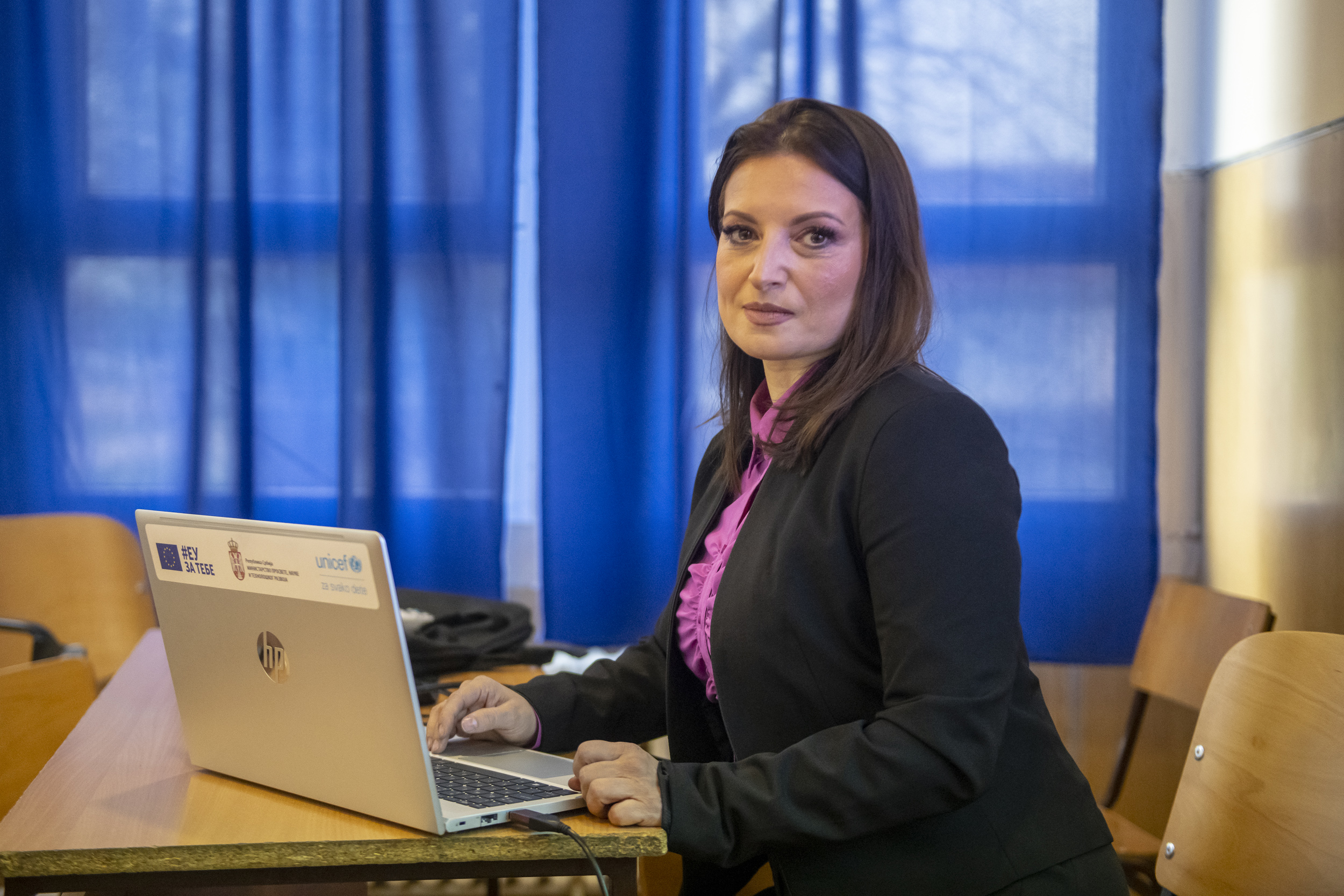
“We have gained both the parents’ and children’s trust, so they are free to ask me about anything that bothers them related to both school and everyday life,” Nada says.
On the other side of Serbia, 500 kilometres away, at the primary school “Jovan Jovanovic Zmaj” in the town of Surdulica, we meet ten students and Dejan Raimovic, a teaching assistant, in the Learning Club. They are just having a workshop on desires and needs. They often talk about the Roma culture, tradition and language.
“I organized this workshop for students from grades 5 to 8, and they found it so interesting because they heard about some terms for the first time; they learned about the Roma alphabet for the first time”, Dejan tells us.
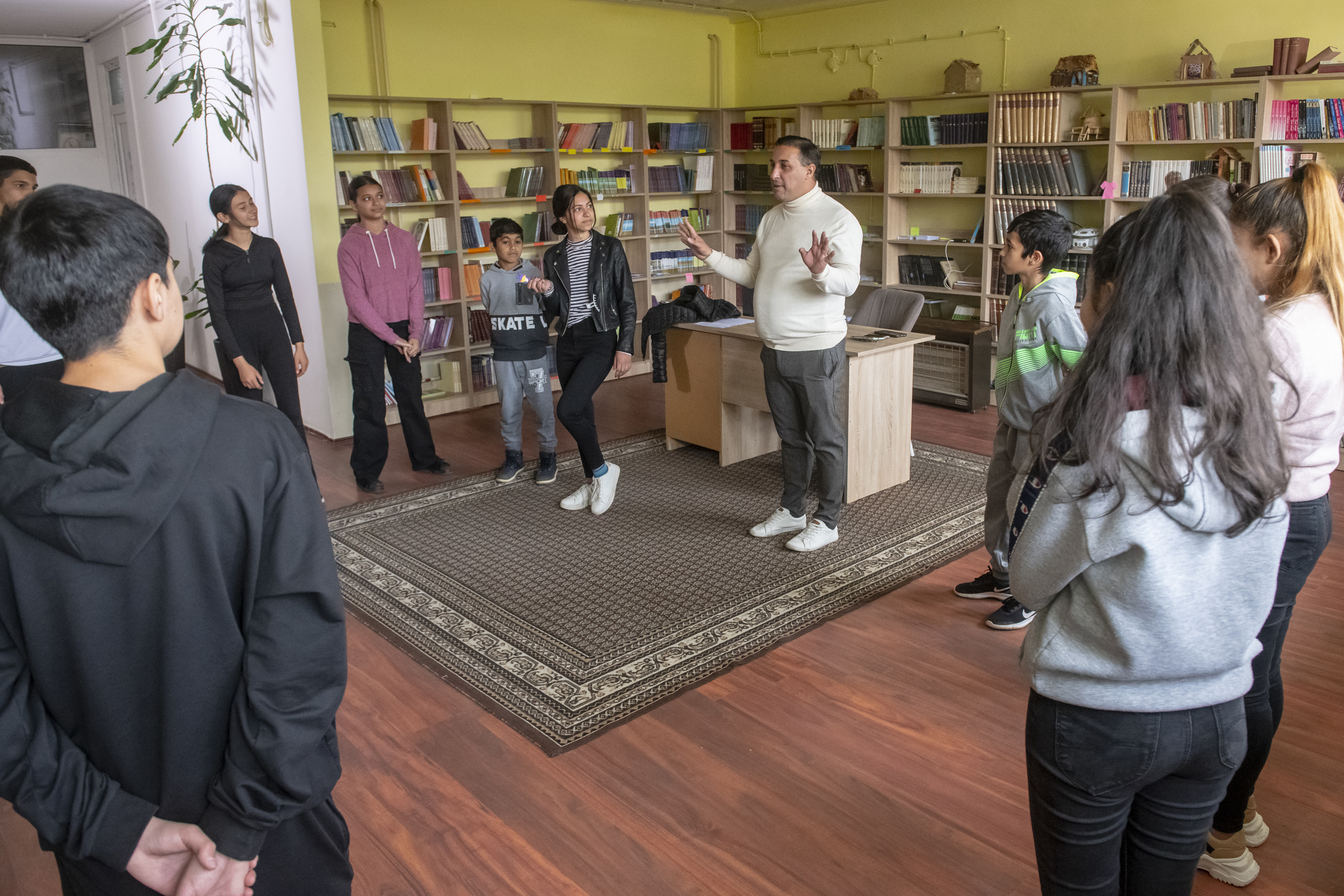
Dejan’s job is not only to support students of Roma nationality, but all students who are faced with educational barriers, and also to provide psychosocial support to these children.
“I notice when certain problems arise at or outside school, talk and analyse them with children to see what activities they would need. And then, I always consult with the experts, with the [school] psychologist and pedagogue, about which workshops we can organize together, what they can do on their own, what I can do on my own,“ explains Dejan.
Dejan is particularly proud of the increase of the number of Roma children who have been passing the final exam at the end of the eighth grade over the years. He remembers that thanks to the trust gained from their parents he used to come to their homes and drive them in his own car to take their exams.
“I work together with teachers, and in cooperation with them I organize additional classes. We work through the content that children study from grades 5 to 8 in order to make the final exam easier for them, so they can score high,” he says.
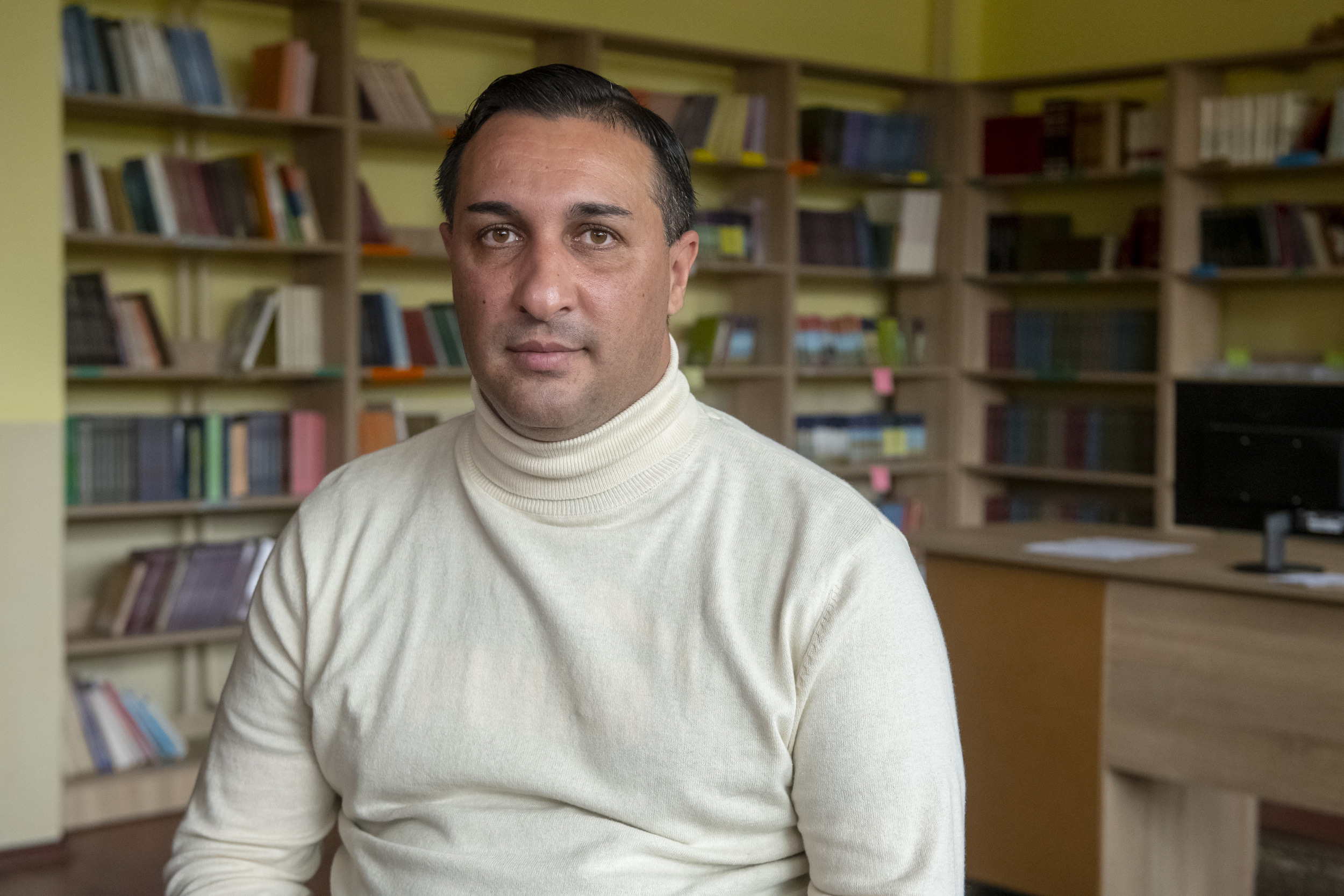
After 14 years of working with Roma children, he found ways to further motivate them to learn and achieve good results.
“I often use myself as an example. I graduated from the College of Economics. I'm an economist by profession, but I work as a learning assistant. I’ve somehow come to love this job and wouldn’t change it. I tell them that I am an example of good practice, an example in my Roma community, that I have been accepted by all Roma in Surdulica, that I am accepted by my colleagues, that education is the key to a successful future,” says Dejan.
He predicts a successful future for the 7th-grade students Gabrijel and Boban.
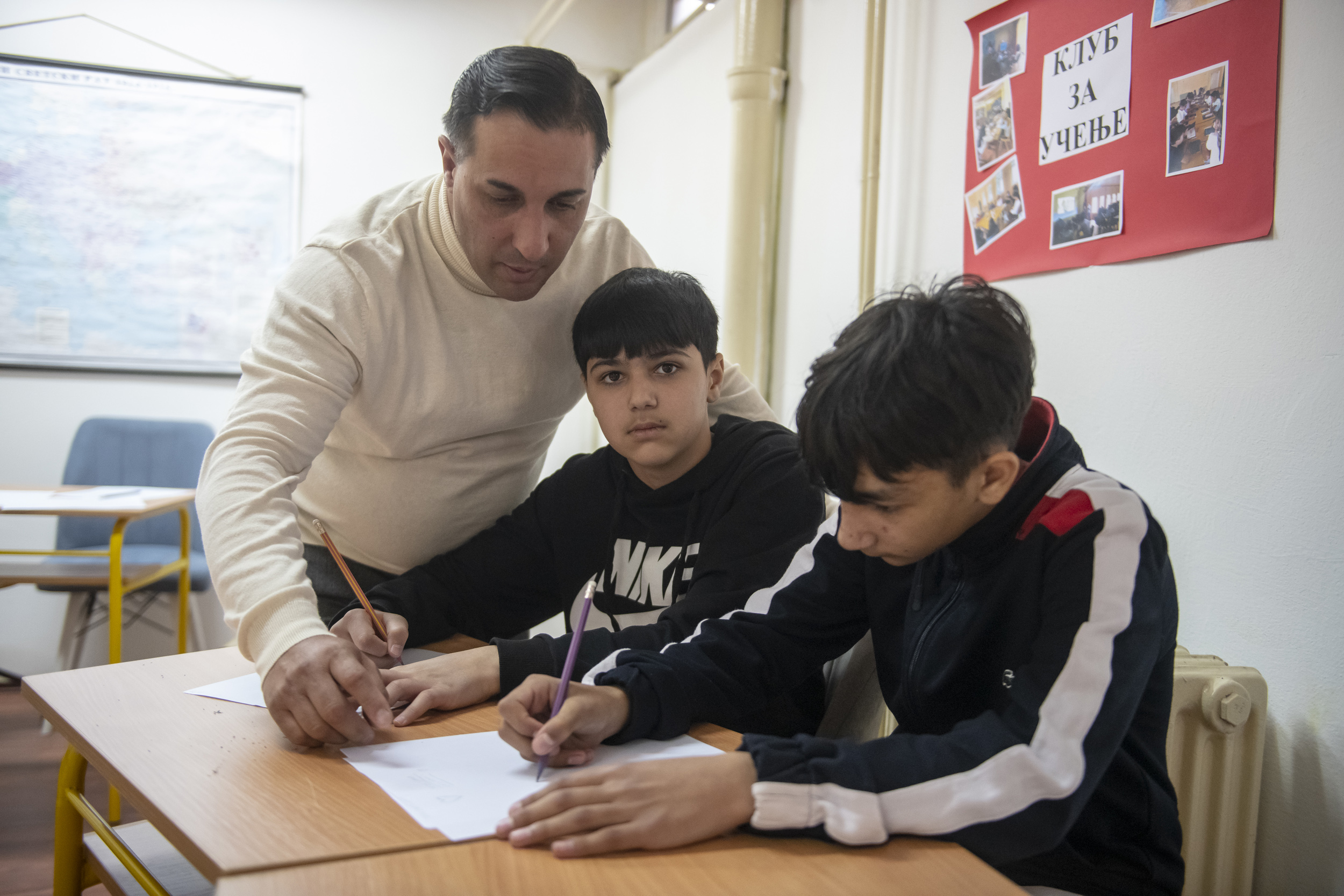
“They help me a lot whenever I organize activities or additional classes. They are an example of good practice not only in this school but in other schools as well,” Dejan says proudly.
Gabrijel has also reached the district-level competition in English.
“When something is unclear to them, I help them, they ask me and I always help them”, Gabrijel says.
Boban explains how he often helps his friends with maths and chemistry, but also how Dejan helps him.
“Once, when I didn't write down notes from some lesson, he asked the teachers to explain this lesson to me”, he says.
The inclusion of pedagogical assistants and implementation of the Bridging the Digital Divide in Serbia for the Most Vulnerable Children project has brought multiple benefits to everyone, firmly believes Bozidar Ivanovic, the chemistry teacher and Learning Club coordinator.
“I would say that we have strengthened the digital potential of the school thanks to the fact that we have equipped the Education Technology Library, and thus strengthened the digital competencies of students, teachers and non-teaching staff. I see less dropout, especially among the final grade students,” he explains.
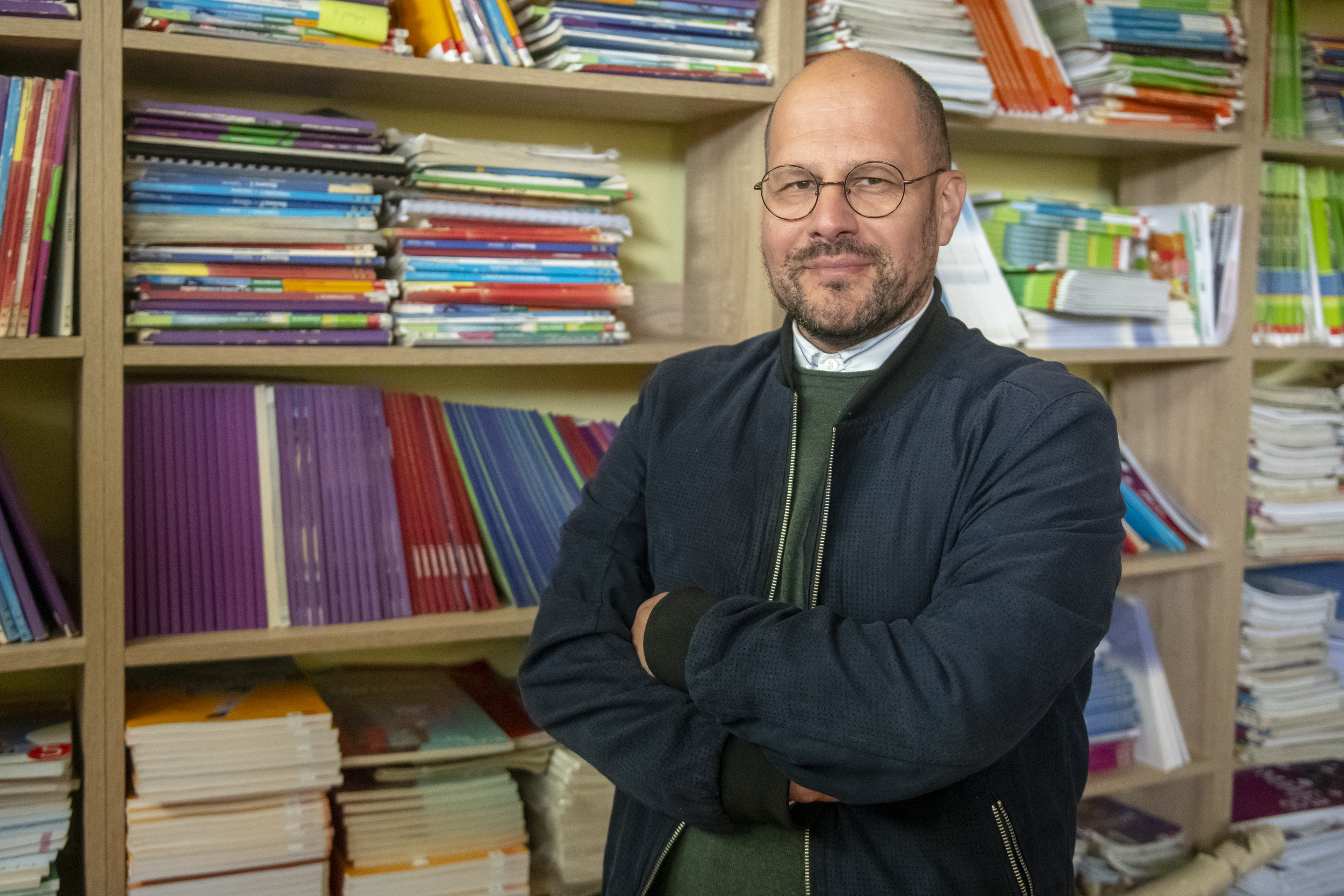
Although the project ends in September 2023, the work of teaching assistants in 30 schools participating in the project will continue with the use of Education Technology Libraries and the work of Learning Clubs since they have been integrated into the school system as examples of good inclusive practice that raises the quality of teaching for all children.
Copyright for all photo and video materials: UNICEF Serbia/2023/Pancic



